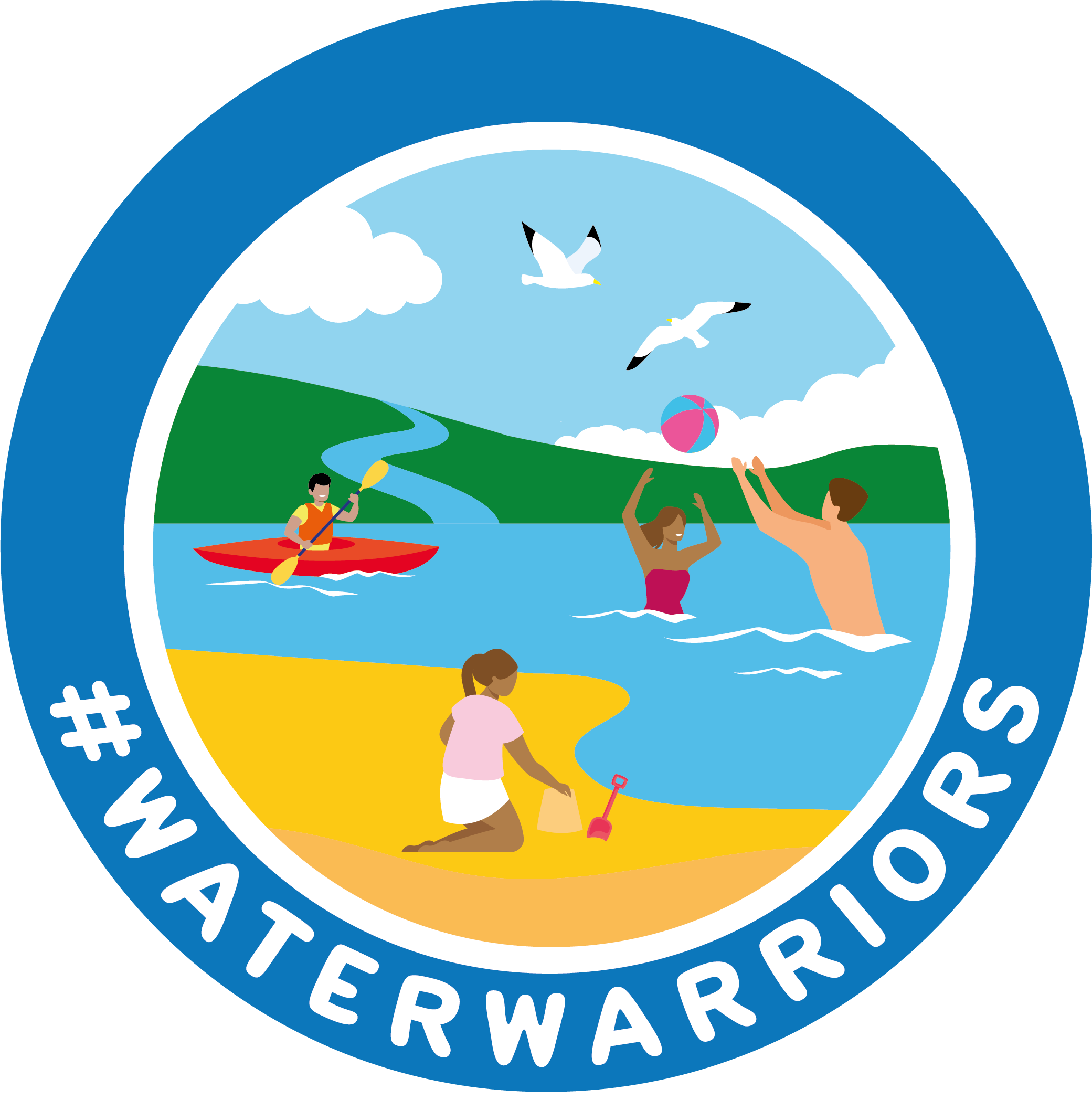July 2021
Blue water, golden sands, gorgeous sunshine. We’re all dreaming of a holiday this year but, with ongoing travel restrictions due to coronavirus, this summer is surely set to be a Great British Staycation for UK holidaymakers. An estimated 30 million people are expected to visit our beaches (source: RNLI), and more still will visit rivers and lakes across the country.
That’s why here at the Environment Agency, we’re running a #WaterWarriors campaign over the summer to help people make informed choices when they visit blue spaces - whether they are at home or away on holiday. In England, many coastal waters, and a few inland lakes known to be popular swimming locations, are designated as bathing waters – and this year, an area of the River Wharfe in Yorkshire is also on the list, recognising the growing popularity and peoples’ enjoyment of these blue spaces.
Get informed with Swimfo
We’re asking holidaymakers to ‘know before you go’ and check out the Environment Agency’s Swimfo website to get the most out of their visits. The website provides immediate access to information on over 400 bathing waters in England, including the latest water quality classification – and, for some bathing waters, info when warnings are issued due to the temporary effects on water quality after a rainy day or high tides. Having this information at the fingertips ensures people have the most up-to-date information before they take the plunge. Joint advice with Public Health England is also available on open water swimming – that’s swimming anywhere that isn’t a public pool - at Swim healthy.
The latest bathing water classifications from 2019 show that 98.3% of bathing waters met the minimum standard, and of these 72% met the highest standard of Excellent. Overall, water quality is much better today than it was 20 years ago. Yes, this may seem like a bold statement, but the evidence is there to prove it. For example, as a result of our work with water companies, waste water treatment works are putting 60% less phosphates and 70% less ammonia into the water environment than they did in 1995. You can read more about water indicators in our recently published State of the Water Environment progress report.
Improving water quality
We know that, where we have a robust regulatory framework and the resources to enforce it, we have seen great improvement. But in many of our rivers, we know that water quality is now flatlining, and there is much more to do. We are already on it, as you would expect – for example, we are working with government on tackling the intermittent discharges from storm overflows, which has a major impact on water quality. We have already required improvements to over 7,000 storm overflows in successive price reviews, 13,000 are now monitored, and we’ll introduce more monitoring over the next 5 years. But improving water quality is complicated, involves everyone who uses and appreciates our blue spaces, and will take time to deliver. We all have our part to play – be it government policy, regulation and enforcement, planning decisions, actions by water companies, farmers and landowners, as well as the behaviour of individuals in the way they use water.
Individual actions do count
So part of our campaign is reminding people that individual actions really do count. Many people are not aware that small actions in the home or at holiday accommodation can have a damaging impact on water quality. Wet wipes, kitchen towel, sanitary products, oil and grease don’t belong down the drain, but are still found in huge quantities, leading to build-up, blockages and poor water quality. We’re asking the public to remember a few simple actions they can take to protect blue spaces for everyone:
We’d really appreciate your support with this campaign, to help everyone play their part in protecting our blue spaces. You can email my team at watercomms@environment-agency.gov.uk - and please do follow #WaterWarriors on social media. Together we can make change happen.
David Dangerfield is Environment Agency Director for Water, Land and Biodiversity.
Follow: @EnvAgency
The opinions expressed in this blog are the author's and not necessarily those of the wider Link membership.





Latest Blog Posts